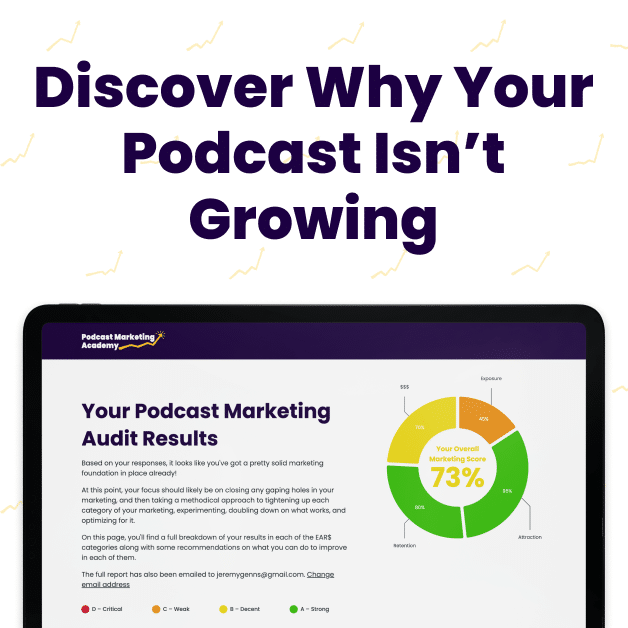Magic, it turns out, it’s fairly simple.
“You will be fooled by a trick,” shares Teller (of legendary magic duo Penn & Teller), “if it involves more time, money, and practice than you (or any other sane onlooker) would be willing to invest.”
A simple magic trick that lasts a few minutes in the theater might take weeks of preparation to set up and get right.
To you or me, the preparation-to-payoff ratio might seem completely absurd.
“But not to magicians,” says Teller.
This is their livelihood, after all. The feeling of wonder at a successfully executed trick is what their audiences pay for. Delivering this thrill consistently is what a magician’s career depends on.
Knowing this, the weeks of preparation start to appear a lot more rational.
The same concept applies to podcasting and marketing.
If we truly want to create and grow standout shows, our job as podcasters is to invest more time, money, and practice than our audience is willing to invest themselves.
And then, share the returns of our investment with them freely.
Most people don’t know how much time actually goes into creating a podcast episode.
There’s the research, recording, post-production, promotion, and all the other marketing that is constantly happening behind the scenes on an ongoing basis.
That’s not including the years we may have already spent accumulating knowledge, and honing our craft, or the time spent generating and sifting through ideas to find the very best ones to bring to our audience.
But none of that time matters to our audiences.
What matters to them is the feeling they experience as a result of that time.
Much like a magician with every episode, our goal should be to leave our listeners saying, “Wow. How did they do that?”
Maybe not with rabbits and hats and decks of cards, but with our perspectives, ideas, and insight.
And our generosity to share them.





